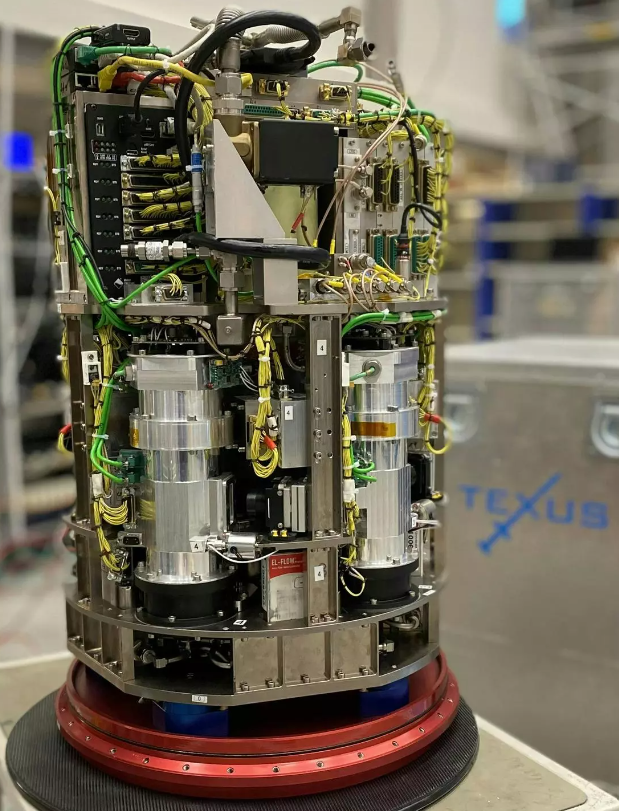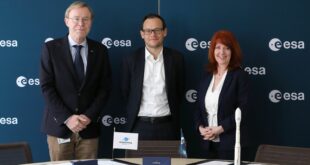
Ibadan, 26 March 2024. – The Airbus-built TEXUS 60 rocket was successfully launched on Sunday, 24 March, from the Esrange Space Center in Kiruna, Sweden. The rocket reached an apogee of 251 km and provided 362 seconds of microgravity time. The payloads on board included two DLR experiments for the German Aerospace Center (DLR), called Simona and GECO, as well as a joint experiment of DLR and the Japanese Space Agency JAXA, called Phoenix 2.
During the microgravity time period of six minutes, Simona performed an experiment to study specific reactions of liquid alloys in microgravity to enhance advanced materials for car engine bearings. On the other hand, GECO recorded calcium interaction with microgravity in plants to expand knowledge about plant cultivation to ensure, for instance, a food source in space. Likewise, Phoenix 2 got deeper into droplet interaction in the spontaneous ignition of multiple fuel droplets, which will lead to a better understanding of liquid spray combustion.
The TEXUS 59 rocket also successfully launched from Esrange on 15 February carrying two ESA experiments, Safari and T-REX, and one DLR experiment, Topoflame, on board. Topoflame aimed to understand the insights of fire safety in astronautical spaceflight, studying flame propagation along solid fuels. Planned space exploration missions raise concerns about fire safety and propagation under conditions of reduced gravity. The launches represent a double success, generating an enormous amount of data to support scientists.
Airbus is in charge of the development of the TEXUS rockets, from the mission concept and engine procurement to the data recovery. Its engineers from different disciplines develop, integrate and test the experimental equipment and establish experimental concepts in collaboration with customers and scientific teams.
 SpaceWatch.Global An independent perspective on space
SpaceWatch.Global An independent perspective on space




